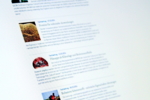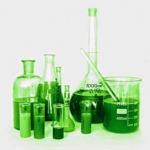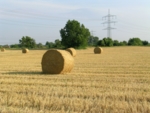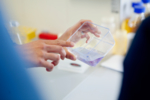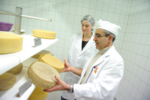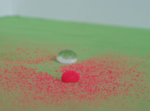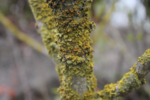Main navigation
Search Results
-
-
-
-
-
-
-
-
-
-
-
-
-
-
-
-
-
-
-
-
Funding Erasmus for Young Entrepreneurs
Scholarship, Funded by: EUhttps://www.biooekonomie-bw.de/en/databases/funding/erasmus-for-young-entrepreneurs -
-
Dossier - 30/09/2014 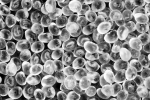
Industrial biotechnology a challenging change to the raw material base
Biogenic raw materials have never been as popular as they are now. Efforts to tap renewable carbon resources are already underway, despite the fact that new oil drilling technologies are boosting fossil fuel stockpiles. In the medium term, industry will have to expand its raw materials base, and in the long term it may have to renew it completely. Industrial biotechnology is one of the key technologies in the transition.
https://www.biooekonomie-bw.de/en/articles/dossiers/industrial-biotechnology-a-challenging-change-to-the-raw-material-base -
-
Dossier - 02/06/2014 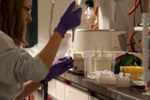
Bioanalysis techniques for the characterization of biological material
Science constantly provides researchers with new challenges biologists and bioanalysts have to deal with and which come from sources as varied as the ever increasing number of resistant pathogenic bacterial strains or the famine conditions in Third-World countries. In the search for scientific truths bioanalysis is the development optimization and application of the entire range of analytical methods available. However we need to keep in mind…
https://www.biooekonomie-bw.de/en/articles/dossiers/bioanalysis-techniques-for-the-characterization-of-biological-material -
Dossier - 16/12/2013 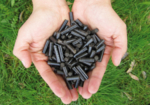
Microbial raw material recycling
While the use of biotechnological methods for the purification of water, soil and air has already been state of the art for quite a few years, the use of microorganisms for the recovery of metal and mineral raw materials from industrial and agricultural waste has also started to attract the interest of scientists. This dossier addresses this topic, explains what geobiotechnology and urban mining are all about.
https://www.biooekonomie-bw.de/en/articles/dossiers/microbial-raw-material-recycling -
Dossier - 09/12/2013 
Industrial biotechnology biological resources for industrial processes
Industrial or white biotechnology uses microorganisms and enzymes to produce goods for industry, including chemicals, plastics, food, agricultural and pharmaceutical products and energy carriers. Renewable raw materials and increasingly also waste from agriculture and forestry are used for the manufacture of industrial goods.
https://www.biooekonomie-bw.de/en/articles/dossiers/industrial-biotechnology-biological-resources-for-industrial-processes -
-
Dossier - 23/09/2013 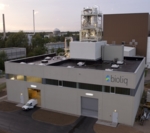
Bioeconomy a new model for industry and the economy
On the one hand, a bioeconomy relies on renewable resources to meet society’s need for food, energy and industrial products. On the other, it emphasises the role of biogenic material flows. The bioeconomy model is expected to reduce our dependency on fossil fuels in the long term. In order to implement the shift to a biobased economy on the regional level, the Baden-Württemberg government launched the Bioeconomy Research Strategy in summer 2013.
https://www.biooekonomie-bw.de/en/articles/dossiers/bioeconomy-a-new-model-for-industry-and-the-economy -
Dossier - 08/07/2013 
Biodiversity in crisis
Biodiversity is essential for functioning, stable ecosystems and the wellbeing of the human race. Despite conventions, resolutions and action plans for the protection of biological diversity at all political levels, the decline of species diversity is increasing dramatically all over the world, including Germany. Targeted projects and funding measures have been put in place with the objective of stopping this deadly trend.
https://www.biooekonomie-bw.de/en/articles/dossiers/biodiversity-in-crisis -
Dossier - 25/03/2013 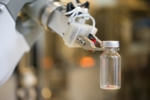
Biotechnology goes automated
Processes that previously required pipetting analysis and production to be carried out manually are increasingly now controlled by automated systems. However this has not necessarily involved a complete reinvention of the wheel instead automation systems used in the plant construction and mechanical engineering sectors are being adapted and optimised for application in the life sciences.
https://www.biooekonomie-bw.de/en/articles/dossiers/biotechnology-goes-automated -
Dossier - 22/10/2012 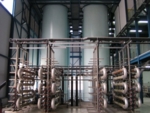
Environmental biotechnology
Biotechnologists are increasingly learning how to apply the knowledge about biological metabolic processes in the field of environmental protection including waste management and environmental rehabilitation. Environmental biotechnology is a field with great potential. In future bacteria and other microorganisms will most likely also contribute to sustainability and cost efficiency in other areas including the cosmetics and detergent industry as…
https://www.biooekonomie-bw.de/en/articles/dossiers/environmental-biotechnology -
Dossier - 08/10/2012 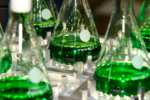
Marine biotechnology unknown sources of hope from the depths of the sea
Biotechnological methods are used to investigate marine life and the results obtained from these investigations advance research in the fields of medicine and energy and into substances used as food supplements and cosmetics. The area of marine biotechnology is fairly diverse. Although it is not on the coast even the southern German state of Baden-Württemberg is involved in marine biotechnology.
https://www.biooekonomie-bw.de/en/articles/dossiers/marine-biotechnology-unknown-sources-of-hope-from-the-depths-of-the-sea -
Dossier - 01/10/2012 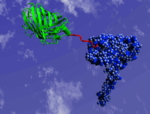
Systems biology understanding complex biological systems
Systems biology studies complex interactions within biological systems on the genome proteome and organelle level. Many techniques from the fields of systems theory and associated fields can be used to gain an understanding of the behaviour and biological mechanisms of cellular systems.
https://www.biooekonomie-bw.de/en/articles/dossiers/systems-biology-understanding-complex-biological-systems -
Dossier - 10/09/2012 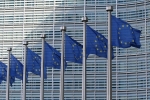
Horizon 2020 the EU framework programme for research and innovation a boost for top-level research in Europe
In the face of the ongoing financial crisis Europe is working on a new research strategy that is aimed at creating new economic growth and jobs. The new EU framework programme for research and innovation Horizon 2020 replaces the 7th Framework Programme FP7 and will run from 2014 with a budget of 80 billion. In July 2012 Brussels launched the final FP7 calls for proposals for 2013 that offer numerous market-based instruments designed to bridge…
https://www.biooekonomie-bw.de/en/articles/dossiers/horizon-2020-the-eu-framework-programme-for-research-and-innovation-a-boost-for-top-level-research-i -
Dossier - 23/07/2012 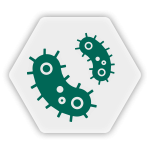
Extremophilic bacteria
What causes stress for some, actually speeds others like extremophilic bacteria up. They love it hot, sour or salty, toxic substances like heavy metals also do them good and even give them energy. As molecular and systems biology techniques get better and better, industry is also becoming increasingly interested in these exotic organisms. What potential does knowing the biochemistry of extremophilic bacteria have for the pharmaceutical, cosmetics…
https://www.biooekonomie-bw.de/en/articles/dossiers/extremophilic-bacteria -
Dossier - 09/07/2012 Bachelors and masters under scrutiny has the new study system stood the test?
More practical relevance, shorter courses and courses that are compatible across Europe – when the decision to implement the bachelor’s and master’s system was made in Germany in 1999, there were high expectations and hopes for the positive changes to come. The question is, have these expectations been met? The time is now ripe for universities and companies to review the progress that has been made in achieving the goals of the Bologna…
https://www.biooekonomie-bw.de/en/articles/dossiers/bachelor-s-and-master-s-under-scrutiny-has-the-new-study-system-stood-the-test -
Dossier - 14/05/2012 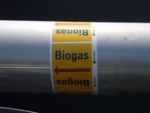
Biogas a promising source of renewable energy?
In addition to sunlight water and wind biogas is a regenerative source of energy that contributes to saving fossil resources. Germany is home to around 7100 biogas plants including 796 as of 2011 in Baden-Württemberg. In 2010 these facilities produced 11 per cent of the electricity generated from renewables in Germany. Energy-rich methane is the major constituent of biogas and is produced when organic compounds are broken down by bacteria in the…
https://www.biooekonomie-bw.de/en/articles/dossiers/biogas-a-promising-source-of-renewable-energy -
-
Dossier - 26/03/2012 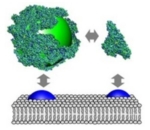
Nanobiotechnology
The term nanotechnology is known by well over 50 of Germans especially since the lotus effect hit the headlines in the late 1990s. Around the turn of the millennium bio was inserted between nano and technology and nanobiotechnology has since taken up more and more room in the headlines as well as requiring major financial investment. What is nanobiotechnology what is the difference between nanotechnology and nanobiotechnology and where and what…
https://www.biooekonomie-bw.de/en/articles/dossiers/nanobiotechnology
